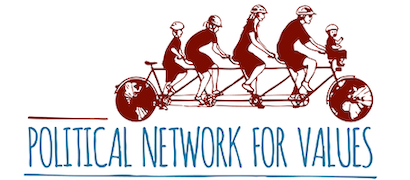A good part of Chile’s future is at stake this coming 4th September. The proposal for a new Constitution is to be approved or rejected this Sunday in a plebiscite. It is a controversial text, which confronts and divides the Chilean people, that considers abortion a right, allows for euthanasia, promotes gender ideology, and does not protect freedom of education or the preferential right of parents to educate their children. You can read – in Spanhish – the full text here.
The “reject” option is currently leading in all the polls, with a distance from “approve” of between 9 and 16 percentage points.
“The rejection has transversal support because most people were convinced that the Constitution proposal is harmful and that it would take us to a total failure. The path Chile is going to take for the next 30 years is deeply at stake”, affirms Cristián Araya, lawyer and MP for the Republican Party of Chile, and member of the Political Network for Values. We talked to him and this is what he told us:
What is at stake for Chile in the plebiscite on September 4th?
Chile is risking the path it is going to take over the next 30 years. The ‘approval’ scenario is the same one that has led Argentina, Bolivia and Venezuela to ruin; the ‘rejection’ alternative, points to a path of freedom and prosperity, preserving and caring for the advances we have had in the last three decades.
Is the text presented by the Constitutional Convention that bad?
Definitely.
Why?
Because it divides Chile in many aspects: through the “plurinationality” that it imposes, it “creates” multiple “nations” with special privileges; establishes parallel justice systems that end with the equality of all before the law.
And the institutions?
They are weakened. It eliminates the Senate -from the bicameral legislative system-, which leaves little room for power checks and balances; it turns towards the State in health materials, and is adverse to investment and stability.
And respect for life and family?
The constitutional proposal does not set limits for abortion, neither conventional nor stage of gestation. It allows for euthanasia. The text promotes gender ideology. It does not protect freedom of education, diversity of educational projects and even less the preferential right of parents to educate their children.
A very radical text…
This is not a Constitution of the Republic of Chile nor is it for Chileans. It is a text that seeks to give power and control to non-representative minorities, including indigenous peoples, but with an ideological tone.
Are you indigenous?
Yes. They took advantage of a circumstantial majority in the Convention, reached with reserved seats, to impose their re-foundational and ultra-leftist offensive.
How did this come about?
We must not forget that the agreement for a new Constitution was made from the insurrectionary violence orchestrated since October 18, 2019, which aimed to overthrow the previous government and ended up forcing an agreement. Originally it is the result of the street violence of the extreme left and the inability of the State to counteract the subversive offensive.
What result do you think the plebiscite will have?
Polls have consistently shown a significant difference in favor of “rejection.” Chile does not want to submit again to a social experiment promoted by the extreme left and I hope that this will be strongly reflected at the polls this Sunday.
Has the “rejection” option been supported even by some leftist leaders?
The “rejection” of this proposal for a new Constitution has transversal support, because the majority of people are convinced that the proposal is harmful and that it would lead us to total failure as a country, destroying everything we have advanced in the last 30 years.
The campaign for “rejection” is plural and very robust…
The “rejection” campaign has been led by citizen organizations that have realized the deception to which they want to subject us Chileans to a minority and radical group.
What has been the role of the Republican Party?
Our party has done work on the ground supporting citizen groups and informing why they should be rejected, but it is the ordinary citizens who have done an important job.
What comes after the plebiscite?
I hope that we return to the path of development and that the country gets back on track, making up for the time lost since the fateful October 2019. I am very concerned that the current government, the left and the traditional opposition parties, disconnected from reality and the mandate of the Chileans, lead us once again to an exhausting constituent process.
[Ω]



